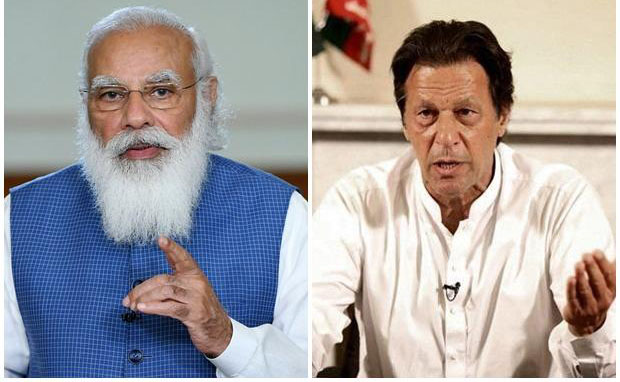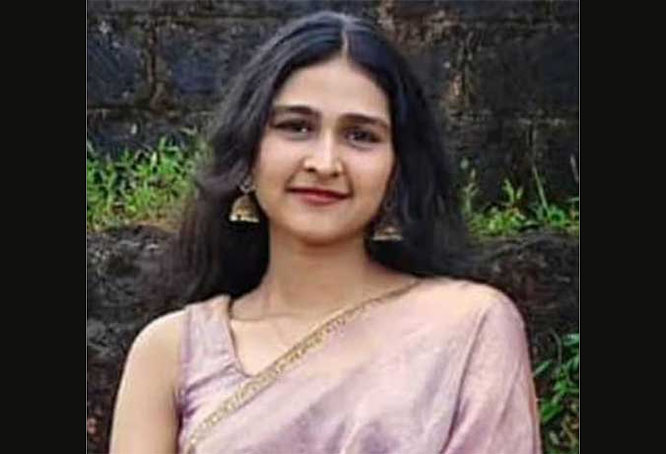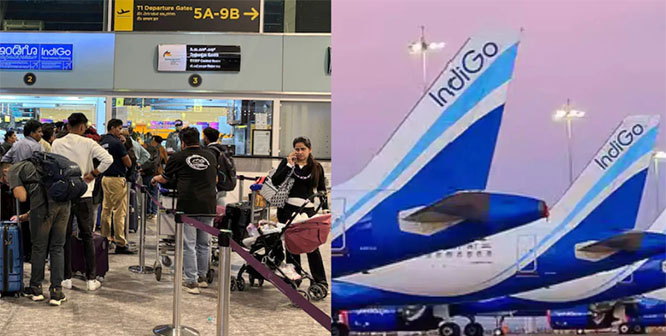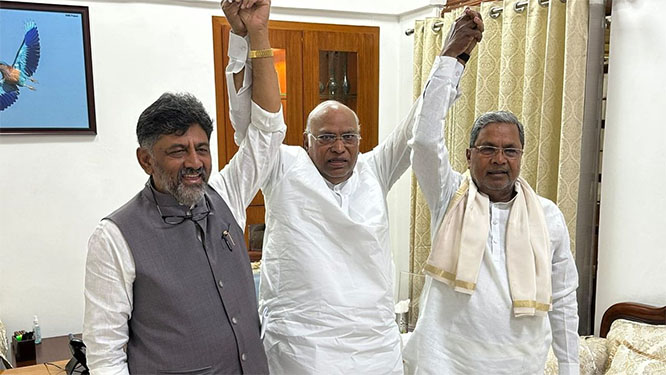
About 24 hours after military chiefs from India and Pakistan surprised the world last month with a rare joint commitment to respect a 2003 cease-fire agreement, the top diplomat of the United Arab Emirates popped over to New Delhi for a quick one-day visit.
The official UAE readout of the Feb. 26 meeting gave few clues of what Foreign Minister Sheikh Abdullah bin Zayed spoke about with Indian counterpart Subrahmanyam Jaishankar, noting they “discussed all regional and international issues of common interest and exchanged views on them.”
Yet behind closed doors, the India-Pakistan cease-fire marked a milestone in secret talks brokered by the UAE that began months earlier, according to officials aware of the situation who asked not to be identified. The cease-fire, one said, is only the beginning of a larger roadmap to forge a lasting peace between the neighbors, both of which have nuclear weapons and spar regularly over a decades-old territory dispute.
The next step in the process, the official said, involves both sides reinstating envoys in New Delhi and Islamabad, who were pulled in 2019 after Pakistan protested India’s move to revoke seven decades of autonomy for the disputed Muslim-majority state of Jammu and Kashmir. Then comes the hard part: Talks on resuming trade and a lasting resolution on Kashmir, the subject of three wars since India and Pakistan became independent from Britain in 1947.
Over the years, India and Pakistan have routinely made peace overtures only to have them quickly fall through, particularly as both sides frequently use the issue to stir up emotions around election time. Officials said expectations were low that the current detente would achieve much beyond the return of envoys and a resumption of trade through their Punjab land border.
But this process appears to be the most concerted effort in years, and comes as the Biden administration is seeking wider peace talks on Afghanistan -- a place both countries for years have battled for influence. Indian Prime Minister Narendra Modi wants to shore up growth and focus military resources on the border with China, while Pakistan’s leaders are also facing economic woes and looking to make a good impression with the U.S. and other powers.
Pakistan’s Foreign Ministry didn’t comment on the talks or the role of the UAE, while the foreign ministries of India and the UAE had no immediate comment.
Last week Pakistan army chief General Qamar Javed Bajwa asked India “to bury the past and move forward” while saying the military was ready to enter talks to resolve “all our outstanding issues.” The comments came a day after Prime Minister Imran Khan after called for a resolution on Kashmir, which he described as “the one issue that holds us back.”
On Saturday, Modi sent a tweet wishing Khan well after he was diagnosed with Covid-19 -- another sign that relations between the countries are getting warmer.
The UAE, which has historic trade and diplomatic links with India and Pakistan, has taken a more assertive international role under de facto ruler Sheikh Mohammed bin Zayed Al Nahyan. The biggest shift has been in the Middle East where the Gulf Arab state has intervened in conflicts and backed groups and regional leaders. But it has also looked to Asia as it strengthens political alliances beyond its role as a global trade and logistics hub.
India-Pakistan ties were effectively cut off two years ago after a suicide attack in India-controlled Kashmir killed 40 Indian soldiers, prompting Modi’s government to authorize air strikes on alleged terror facilities inside Pakistan. The joint statement last month said the two sides “agreed to address each other’s core issues,” signaling a wider discussion on Kashmir and terrorism.
Several clues over the past few months pointed at the UAE’s role. In November, Jaishankar met bin Zayed and the crown prince on a two-day visit to Abu Dhabi, followed by Pakistan Foreign Minister Shah Mahmood Qureshi the following month. Roughly two weeks before the Feb. 25 announcement, the UAE foreign minister held a phone call with Pakistan Prime Minister Imran Khan “wherein they discussed regional and international issues of interest.” And just days before, India allowed Khan’s aircraft to fly over Indian airspace as he headed to Sri Lanka for a state visit -- a practice suspended since the 2019 hostilities.
After the cease-fire, the UAE was one of a handful of countries to issue a statement welcoming the cease-fire announcement, highlighting the “close historical ties” it has with both India and Pakistan and hailing “the efforts made by both countries to come to this agreement.” In Washington, State Department spokesman Ned Price dodged a question on what role the U.S. played in bringing the two sides together while urging Pakistan to play a constructive role in Afghanistan, Kashmir and other places.
“Obviously Pakistan has an important role to play when it comes to Afghanistan and what takes place across its other border,” Price said on Feb. 25. “So clearly, we will be paying close attention.”








Comments
Add new comment